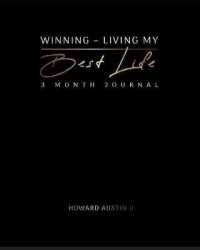Full Description
The revolutions of France, the United States, and England each inspired dreams of creating legal institutions that did not depend on specialist intermediaries, and, in different ways, provoked attacks on the existing rules and government of the legal profession more widespread and severe than at any other time in their history. These dreams came to naught and, sooner or later, the professions recovered, but their revolutionary experiences nevertheless had a lasting impact on their subsequent organization, and help to explain why three previously convergent professions should diverge as their societies industrialised.
The social upheaval of industrialization may also help to explain many of their peculiarities down to the present day: why, for instance, French advocates imposed such strict ethical obligations on themselves, from which they were only released by the state in 1992, why American lawyers should be the first to be at ease in the market, but faced intractable problems of professional self-government, why two professions should emerge in England, both with a high degree of self-government, and both long indifferent to law schools and to the market for legal services.
Since lawyers were the first occupation to organize as a profession, this insightful comparative inquiry then asks what their experience might tell us about other organized occupations in these three societies, and the difference between their educational institutions, their division of labour, their civil societies and lesser forms of government, and about the ways they have been stratified and formed classes.
Contents
1. Investigating a Fateful Encounter ; Utopian Ideals and Revolutionary Practice ; Two Contested and Honorific Concepts - Revolution and Profession ; Why Do Professionals Behave the Way They Do? ; What Have They Actually Done, or Tried To Do? ; The Framework of the Investigation, the Evidence and its Presentation ; 2. Ideal and Myth in the Lives of French Advocates ; The Formation of a State and of a Profession ; Reconsidering the 'Triumph of the Professionals' ; ...And the 'Demise' of Advocates Before the Revolution ; The Original Revolutionary Design: Act I ; Terror and Thermidor: Act II ; Napoleon's Selections, Innovations, and Synthesis: Act III ; Return of the Advocates and Their Orders ; Why was the Profession Destroyed? ; Cycles of Constitutionalism, Repression, and Revolution ; Bourbon Beginnings 1815 - 30 ; Orleanist Reprise 1830 - 48 ; Napoleanic Coda 1848 - 70 ; The Original Revolutionary Design Re-Enacted, Paris 1871 ; Marx's Nightmare and Tocqueville's Theatre ; A Protracted and Reluctant Return to Normalcy ; Schools, Stage, and Invisible Barriers ; A Jurisdiction Defined by Incompatibilites and Plaidoiries ; Alter Ego Tries to Change Advocates' Behaviour ; Three Threats to Absolute Independence ; An Anachronistic Sense of Humour ; Myth and Irony in the Career of a Super-Profession ; 3. Practitioners vs. Legislators and Professors in the United States ; A Journey from Utopia Back to England - Lawyers in the Colonies ; The Revolution Controlled, for the Most Part ; The Massachusetts Electorate Interprets the Revolution ; Other States, Other Interpretations ; Removing Restrictions on Legal Practice ; The Collapse of Bar Associations and the Philadelphia Exception ; Elected Judges and Codes Complete Americanization ; Was it Capitalism, the Frontier or the Revolution? ; Three Stages of Reconstruction ; What had Changed During the Interregnum? ; Practitioners vs. Professors and Legislators ; Practitioners Search for an Effective Form of Government ; An Undependable Ally: the Judiciary ; Aother Undependable Ally: the Law Schools ; Explaining Unethical and Innovative Behaviour ; An Asymmetrical and Ever-Expanding Jurisdiction ; How a 'Body' Became a Ladder ; Failure or Success? Some Clues from Philadelphia ; 4. Learned Friends and Gentlemen in England - Beneficiaries of the Glorious Revolution ; Confused Candidates in a Marketplace ; Strange Bodies - the Inns Before the Revolution ; The Trauma and the Tremor ; Searching the Inns and the Courts ; Explaining the Failure of the Revolutionary Movement ; An Infrastructure of Absolutism is Created by Writs ; ...And Destroyed by 'the Greatest Thing Done by the English Nation' ; The Medieval Corporation then Advances into the Modern World ; Pupillages and Articles ; Hedges, Honour and Markets ; Little Republics, Little Commonwealths ; Spinning Webs of Mutual Restraint ; Status Rivals and Allies ; Industrialization, Democracy, and the Unwritten Constitution ; Is Professional Power an Adequate Explanation? ; Thatcher and a Turbulent Tercentenary ; The Discrediting of Self-Governing Communities ; 5. Comparing Professions and Societies ; The Kinship of Old Regime Lawyers ; Facing Common Revolutionary Aspirations ; Diverging Paths into the Modern World ; An Unmistakeable and Inconvenient Conclusion ; An Ancien Regime Guide to French Modernity ; A Slice of the American Dream ; M'Learned Friends Illustrate Englishness







